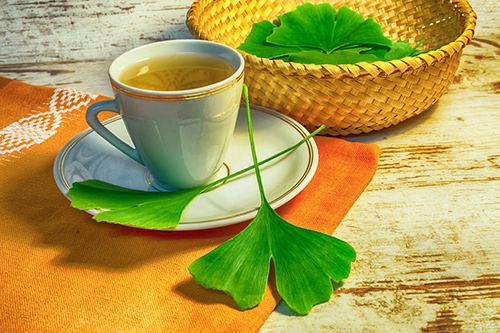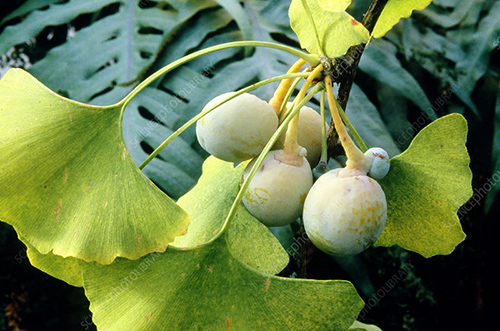Contents
The long-lasting life and endurance of this Asian tree seem to harmonize with its virtue of helping humans confront the disorders of age, which is just one of the many ginkgo Biloba benefits.
For over 4000 years, Chinese medicine has used ginkgo poultices to fight annoying chilblains. Its remarkable properties have been the focus of much scientific research, and it is currently contained in several pharmaceutical preparations.
How to Use

- Infusion with 40-60 g of leaves per liter of water. Drink up to three cups of ginkgo Biloba tea daily.
- Compresses with the same infusion, though slightly more concentrated (up to 100 g per liter), applied on the hands or feet with circulatory problems.
- Poultices of mashed leaves were applied to the affected area.
- Hand and foot baths with an infusion of up to 100 g of ginkgo leaves per liter of water. Apply warm or lukewarm once or twice daily. The best results are obtained by combining oral intakes with external applications.
Ginkgo Biloba Scientific Information
- Synonyms: Maidenhair tree
- French: Ginkgo, noyer du Japon
- Spanish: Ginkgo, arbol de oro
- Habitat: Native to China, Japan, and Korea, it is now widely used as an ornamental tree in parks and public avenues in some warm regions of Europe and America
- Description: This plant is a tree of the Ginkgoaceae family, growing up to 30 meters high. It is dioic (with different male and female plants), with deciduous, thick, elastic leaves divided into two lobules when young. Its fruit is a yellow berry, edible when fresh but nauseating when too ripe.
- Parts used: The leaves
Medicinal Properties
The leaves contain flavonoid glycosides, chercitine, luteolin, catechins, resins, essential oil, lipids, and some terpenic group substances inherent in ginkgo: bilobalide and ginkgolides A, B, C. As is usual in phytotherapy, the plant’s medicinal properties are brought about by the compound action of its components. Its effects cannot be attributed to any specific part. Ginkgo acts on the circulatory system, improving arterial, capillary, and venous blood circulation.
Ginkgo Health Benefits

Vasodilating Action – It increases perfusion (blood flow), decreasing peripheral resistance in small arteries. It also partially counteracts the disorders of arteriosclerosis.
Capillary Protection Action – It diminishes the permeability of blood vessels, reducing edema (accumulation of liquid in the tissues).
Venous Stimulation – It strengthens the walls of veins, decreasing the accumulation of blood and easing blood return.
Cerebral Blood Insufficiency or lack of blood flow into the brain manifests itself through vertigo, cephalalgia, ringing in ears, loss of balance, memory disorders, and drowsiness, among other symptoms. Those who use ginkgo say that “it clears the head.”
Vascular Brain Accidents – (thrombosis, embolism, etc.). It accelerates healing and improves the mobility of the patients.
Arteriopathy In the Legs (Loss of blood flow in legs): Ginkgo allows patients to walk longer distances without pain.
Angiopathy (blood vessel disorders) and vaso-motor disorders: Reynaud’s Syndrome, blood vessel weakness, acroparesthesia (numbness in hand and feet), chilblains.
Varicose Veins, phlebitis, tired legs, malleolar edema (swollen ankles).
In the circulatory afflictions of arms and legs, it is recommended that the oral intake of ginkgo is combined with external applications in poultices, compresses, hands, and feet. Ginkgo is well-tolerated and does not present undesirable side effects, nor does it raise blood pressure. Therefore, is it safe to take ginkgo biloba every day? The answer is yes.
DISCLAIMER: All content on this website is presented solely for educational and informational objectives. You should not rely on the information provided as a replacement for advice, diagnosis, or treatment from a qualified medical expert. If you are pregnant, nursing, or have any preexisting medical concerns, you should talk to your doctor before using any herbal or natural medicines.
REFERENCES
- George D. Pamplona-Roger, M.D. “Encyclopedia of Medicinal Plants.” George D. Pamplona-Roger, M.D. Encyclopedia of Medicinal Plants. Ed. Francesc X. Gelabert. vols. 1 San Fernando de Henares: Editorial Safeliz, 2000. 234, 235. Print. [ginkgo biloba benefits]
- National Institutes of Health (NIH)
- Mayo Clinic
- National Center for Complementary and Integrative Health (NCCIH): https://www.nccih.nih.gov/health/ginkgo
- Alzheimer’s Association
- DeKosky ST, et al. Ginkgo biloba for prevention of dementia: a randomized controlled trial. JAMA. 2008 Jul 23;300(4):2253-62.
- Snitz BE, et al. Ginkgo biloba for preventing cognitive decline in older adults: a randomized trial. JAMA. 2009 Apr 22;302(15):1654-62.
- Brinker F, et al. Ginkgo biloba extract EGb 761 in dementia: intent-to-treat analyses of a 24-week, multi-center, double-blind, placebo-controlled, randomized trial. Pharmacopsychiatry. 2003 Jul;36(4):123-31.
- van Beek TA. Ginkgo biloba. In: Coates PM, Blackman MR, Cragg GM, Levine M, Moss J, White JD, eds. Encyclopedia of Dietary Supplements. 2nd ed. New York, NY: Informa Healthcare; 2010:415-25.
